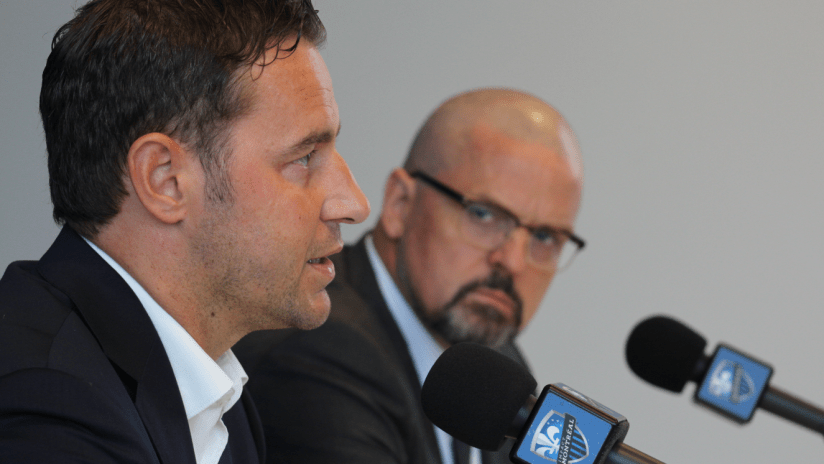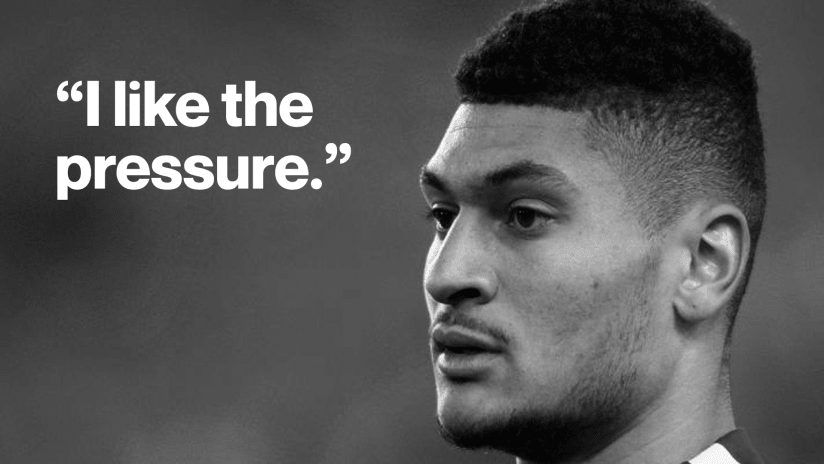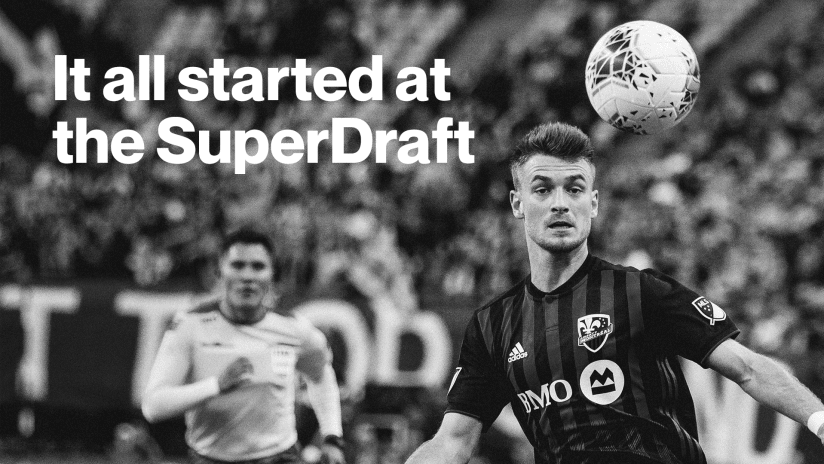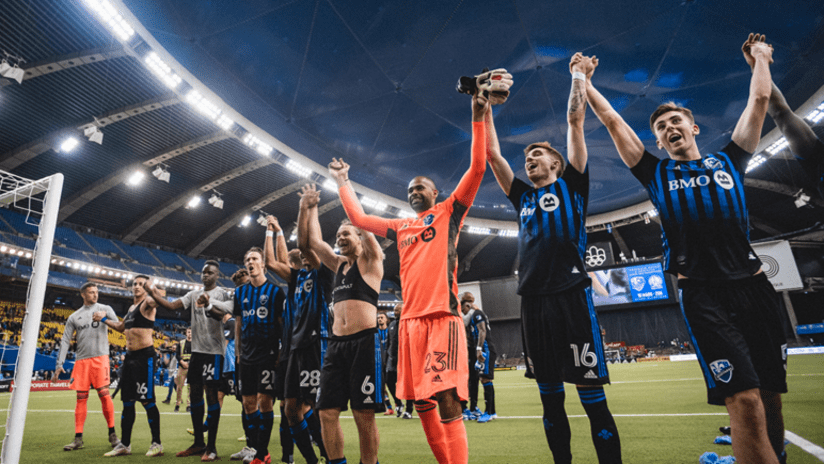The former Belgian international joins the Impact as sporting director
An important step was taken today regarding the Impact’s sporting structure. After months of discussion and analysis, the club’s new sporting director was finally presented, after the Impact announced his hiring over the weekend.
Olivier Renard, the former professional goalkeeper, who has acted as a sporting director with KV Mechelen, from 2014 to 2016, and Standard de Liège, from 2016 to 2019, will bring his experience to MLS, in hopes of making the Montreal Impact a contender for the MLS Cup in the years to come.
Tuesday morning at Centre Nutrilait, Renard was presented to the media for the first time alongside president Kevin Gilmore. In a presser that lasted more than 45 minutes, one particular thing stood out: the Impact will play an attacking style.
“I won’t be the one deciding if the Impact will line-up in a 4-4-2 or 4-3-3 formation,” said Renard, speaking with Impact Media following the press conference. “What I can do is talk about our way of recruiting. In modern football, speed makes the difference, and playing a vertical game. Those criteria will be at the forefront of our recruiting style. But we can’t throw everything out that’s been done here. There are players that are playing below their level at the moment.”
The 40-year old originally started in Malines, in Belgium, the last club he played for before announcing his retirement six years ago. The Belgian international was asked to stay on and help recruit during the transition. The club started to see results right away and Renard stayed on for another season, learning the ins and outs of how a club functions at the top level.
Now, with six years of experience under his belt, Renard has developed a recruitment style that’s certainly paid dividends in the past, and his ability to build a winning team, something he’s proven multiple times in the past, is something that made him particularly desirable for the Montreal club.
“Every position is different,” said Renard. “In a team, there needs to be a mix of technical players and hard workers. If your starting 11 consists of just artists, it won’t work out. You need to have players ready to put in the work next to a player who may make the difference. A win is thanks to everyone and everyone is a part of the championship team at the end.”
With Belgian giants Standard de Liège, Renard led the first team to two cups in three years, a period he called particularly good for himself as he gained experience as a sporting director. But despite his ability to build a sustainable squad, with every different type of player working a specific role for the team’s overall success, it’s only a part of what’s made up his personal success at this level.
As Renard mentioned himself, a load of factors go into deciding the outcome of a football match, factors which are often external and uncontrollable: injuries, weather, travel, etc. For him, it’s a club’s ability to adapt to these factors that make up its strength.
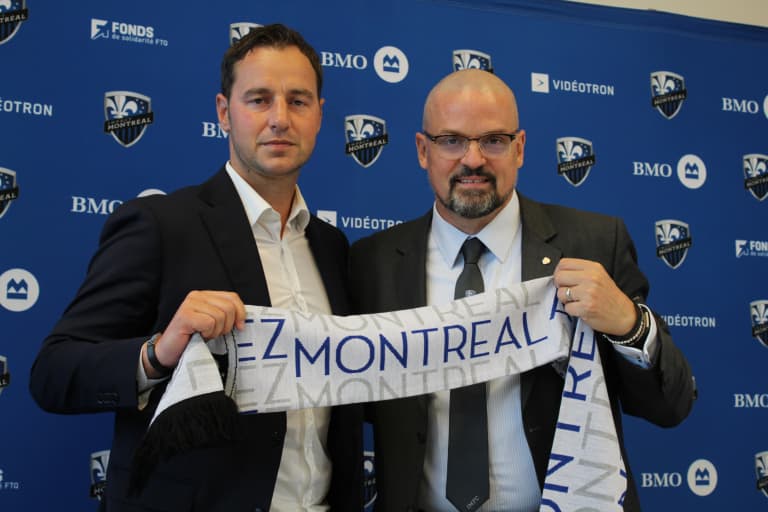
“Football isn’t like a baker making his bread,” explained Renard. “A baker has his ingredients and a recipe, and nine times out of 10, the same bread comes out of the oven. In football, you can field the exact same team 10 times and you’ll get 10 different games. That’s the beauty of the sport.”
The coming months will prove crucial to Renard, as he learns more about the club’s existing structure and the people occupying its roles. Although the 40-year-old insists that he’s used to the same time constraints in Europe, things will certainly move quickly: the Impact’s training camp will most likely begin sometime in mid-January, with the club having to prepare for Champions League matchups come February, before the start of the regular season in MLS, which will also be earlier than usual next year.
Of course, that means getting to know the club’s different departments, in particular the club’s Academy and Pre-Academy, and everything else below the first team that makes it function.
“The first team is just the tip of the iceberg,” added Renard. “Everything under the water is just as important. The only difference with the first team is that we’re on TV. The Academy’s coaches are just as important as those making decisions up top. The base of the iceberg is what allows you to float.”

